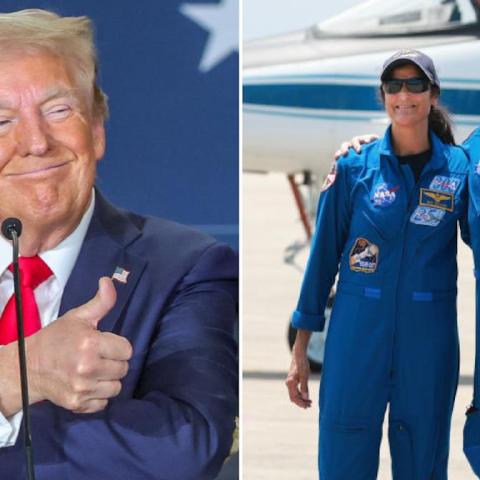Ukrainian President Volodymyr Zelensky and former U.S. President Donald Trump recently met in Washington. This marks Zelensky’s third visit to the U.S. since January. The meeting comes at a critical time as Trump considers whether to supply Ukraine with Tomahawk missiles, which could reach targets deep within Russia.
During a phone call with Russian President Vladimir Putin the day before the meeting, Trump mentioned that “great progress” had been made. He hopes this will lead to in-person talks later. Zelensky, on the other hand, sees these developments as a potential advantage for Ukraine, especially if the U.S. supplies advanced weaponry.
Zelensky has urged the U.S. for these missiles, which have a range of 1,500 miles. Trump hinted at the possibility, saying, “We’ll see… I may.” However, he expressed concerns about depleting U.S. stockpiles, stating, “We need them too.”
In the backdrop of these discussions, Russia launched one of its largest attacks on Ukraine in recent months, hitting various locations with missiles and drones. Ukrainian Ambassador to the U.S., Olga Stefanishyna, criticized Moscow’s aggressions, saying the attacks reveal Russia’s true stance on peace negotiations. She emphasized the need for tougher sanctions and improved air defenses for Ukraine.
Hungarian Prime Minister Viktor Orban viewed the planned meeting between Trump and Putin as a positive step toward peace. He stressed that dialogue is essential, stating, “Peace requires patience, strength, and humility.”
Trump’s relationship with Zelensky has improved since their previous tensions, which peaked in February 2025 during a televised meeting where both leaders expressed strong concerns over Ukraine’s situation. More recently, Trump indicated a more supportive stance toward Ukraine, suggesting it could reclaim its territories. This signals a shift from his earlier views, where he suggested Ukraine should cede land to Russia.
Interestingly, Trump has previously claimed he could end the war in Ukraine quickly but now admits it has been a complex issue. Public sentiment appears mixed. Some view Trump as too lenient towards Russia, while others appreciate his evolving perspective on Ukraine’s resilience.
The situation remains fluid, with ongoing discussions amid rising tensions. Insights from international relations experts suggest continued pressure on Russia is necessary, especially through sanctions and military support for Ukraine. As the conflict unfolds, all eyes will be on how these diplomatic efforts shape the future of Ukraine and its alliances.
For further reading on the ongoing conflict and international responses, you can check here BBC News.





















